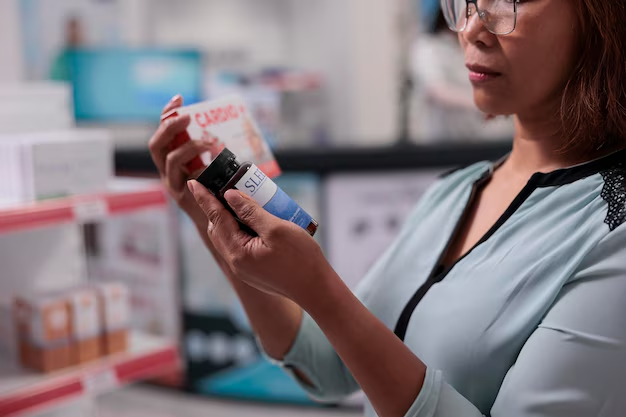Understanding Malaria and How to Approach Treatment
Malaria is a life-threatening disease that remains a significant concern in many parts of the world. It’s a condition that millions grapple with, particularly in tropical regions where the disease thrives. But how exactly should one go about treating malaria? Let’s dive into understanding this disease, its symptoms, and explore treatment options and preventive measures.
What is Malaria?
Malaria is an infectious disease caused by parasites of the genus Plasmodium. These parasites are transmitted to humans through the bites of infected female Anopheles mosquitoes. Once in the human body, these parasites multiply, primarily affecting red blood cells.
Key Symptoms of Malaria
- High fever and chills
- Headaches and body aches
- Sweating, nausea, and vomiting
- Fatigue and general weakness
- Anemia due to destruction of red blood cells
- If untreated, severe cases can lead to organ failure, severe anemia, or cerebral malaria.
Knowing the symptoms can prompt timely medical attention, which is crucial as malaria can progress rapidly.
Approaching Treatment: What Are Your Options?
Medical Intervention
The cornerstone of malaria treatment is antimalarial medication. Here’s what you need to know:
Diagnosis First: Always seek a confirmed diagnosis. Healthcare providers typically use blood tests to detect Plasmodium parasites.
Effectiveness of Antimalarials: The effectiveness of the treatment largely depends on the parasite species and local drug resistance patterns. Common medications include:
- Artemisinin-based combination therapies (ACTs): These are the most effective medicines for P. falciparum malaria.
- Chloroquine: Used in places where the parasite remains sensitive.
- Quinine, Mefloquine, and Doxycycline: Suitable alternatives depending on the region and patient.
Dosage and Duration: Prompt and adequate dosage is crucial. Treatment lengths can vary depending on the type and severity of malaria.
Supportive Care
In severe cases, patients might require hospitalization for intensive supportive care. This can include:
- Intravenous fluids and electrolytes
- Blood transfusions in cases of severe anemia
- Oxygen therapy for respiratory distress
Avoid Self-Medication
Warning: Avoid self-medication or taking antimalarials without professional guidance. Incorrect usage can worsen resistance and delay recovery.
Preventing Malaria: Cutting Off the Source
Prevention is a critical element in tackling malaria, and here’s how you can play your part:
Use of Mosquito Nets and Repellents
- Insecticide-treated bed nets: Widely promoted due to their effectiveness in reducing malaria cases.
- Mosquito repellents: These provide personal protection against mosquito bites.
- Long-sleeved clothing: Especially around dawn and dusk when mosquitoes are most active.
Environmental Control
Efforts to reduce mosquito populations are ongoing in many regions, including:
- Removing standing water: Mosquitoes breed in stagnant water. Ensuring that surrounding areas are free from such water can help.
- Spraying insecticides: In mosquito-dense regions, spraying can significantly cut down mosquito populations.
Prophylactic Medication for Travelers
For those traveling to malaria-endemic areas, prophylactic medication is advised. Consult a healthcare professional about the appropriate medication for the region you plan to visit.
The Importance of Community Awareness and Education
Understanding and cooperation at the community level are crucial in fighting malaria. Here’s how communities play a role:
- Educational campaigns: Raising awareness through campaigns helps communities understand symptoms and encourage timely treatment.
- Community support groups: Sharing experiences and knowledge within communities can lead to better outcomes.
Global Initiatives and the Fight Against Malaria
Organizations around the world are actively working to reduce the malaria burden through various initiatives.
Role of International Organizations
- World Health Organization (WHO): Provides regular updates and guidelines for malaria treatment and prevention.
- Global Fund to Fight AIDS, Tuberculosis, and Malaria: Offers funding for treatment and prevention programs in afflicted regions.
Research and Development
Ongoing research aims to develop new vaccines and medications to tackle drug-resistant malaria strains. These efforts are vital in controlling and eventually eliminating malaria globally.
Empowering Yourself with Knowledge
Despite being a severe disease, malaria is preventable and treatable. By understanding the symptoms, seeking timely medical advice, and employing effective preventive measures, you can significantly reduce the risk posed by malaria.
Key Takeaways
- Always seek professional medical diagnosis and treatment.
- Use preventive measures like mosquito nets and repellents.
- Stay informed about local health advisories and updates.
- Advocate for and support community awareness efforts.
Malaria is a global challenge, but with the right knowledge and strategies, we can pave the way towards a world where malaria is no longer a threat.
📋 Summary: Essential Tips for Dealing with Malaria
- 👩⚕️ Diagnosis is Crucial: Always ensure a professional diagnosis before treatment.
- 💊 Follow Prescribed Medications: Use antimalarials as directed by healthcare professionals.
- 🛡️ Practice Prevention:
- Use insecticide-treated mosquito nets.
- Apply mosquito repellents and wear protective clothes.
- 🌍 Engage in Community Efforts: Support educational campaigns and initiatives.
- 🧳 Travelers Alert: Take prophylactic medication if traveling to malaria regions.
- 💡 Stay Informed: Regularly update yourself on global health advisories and guidelines.

